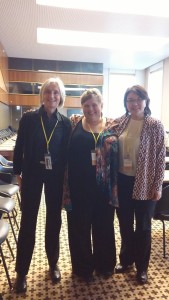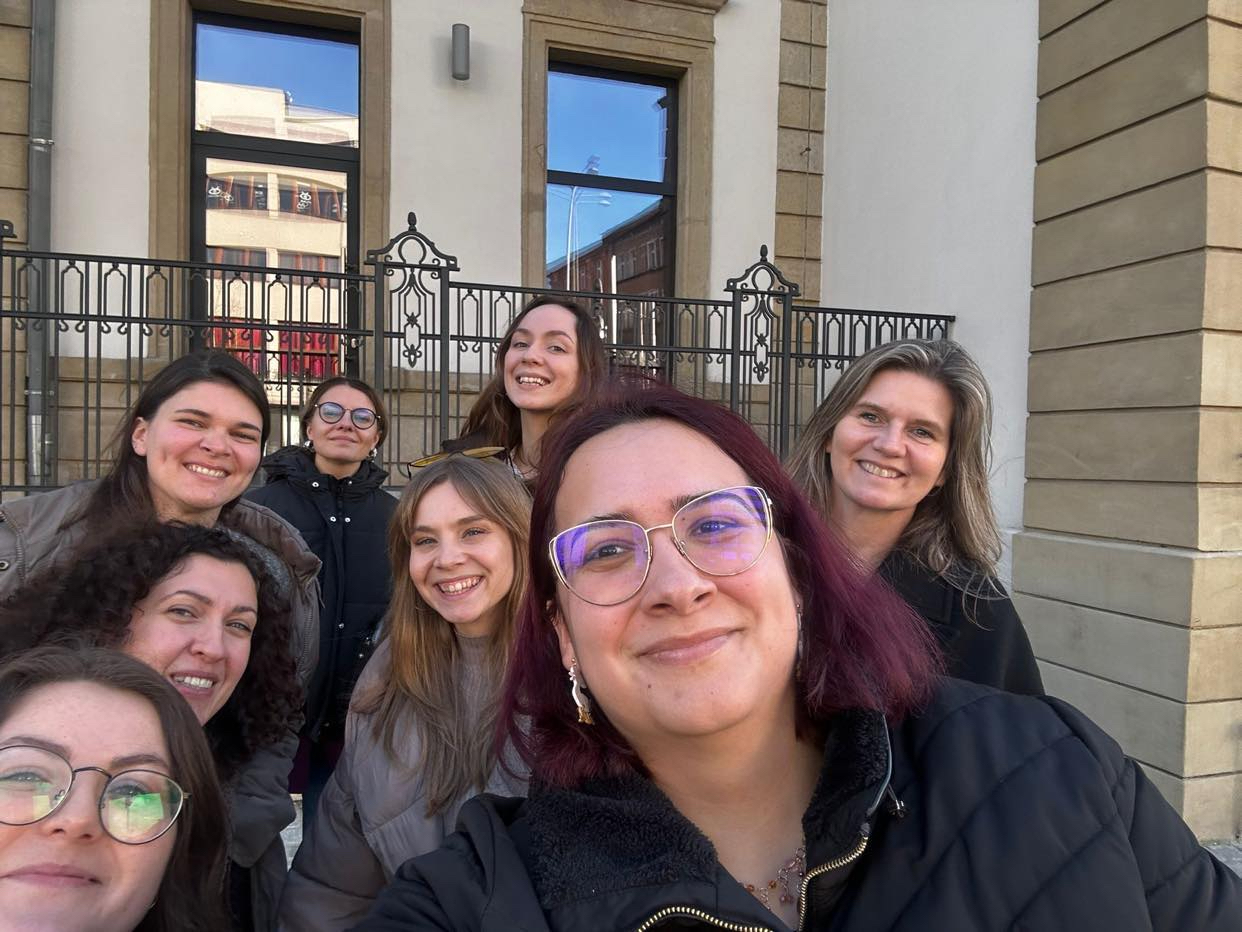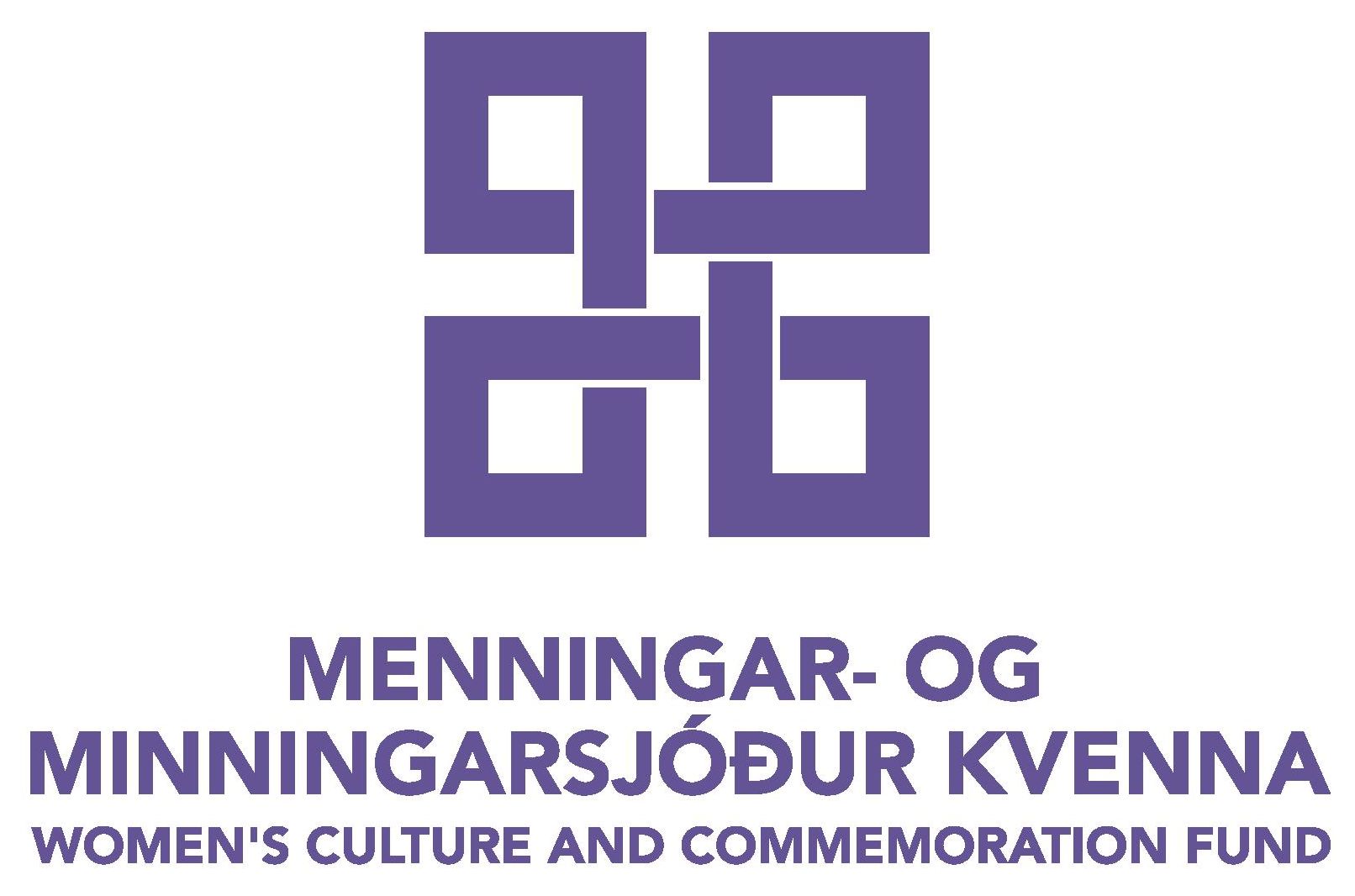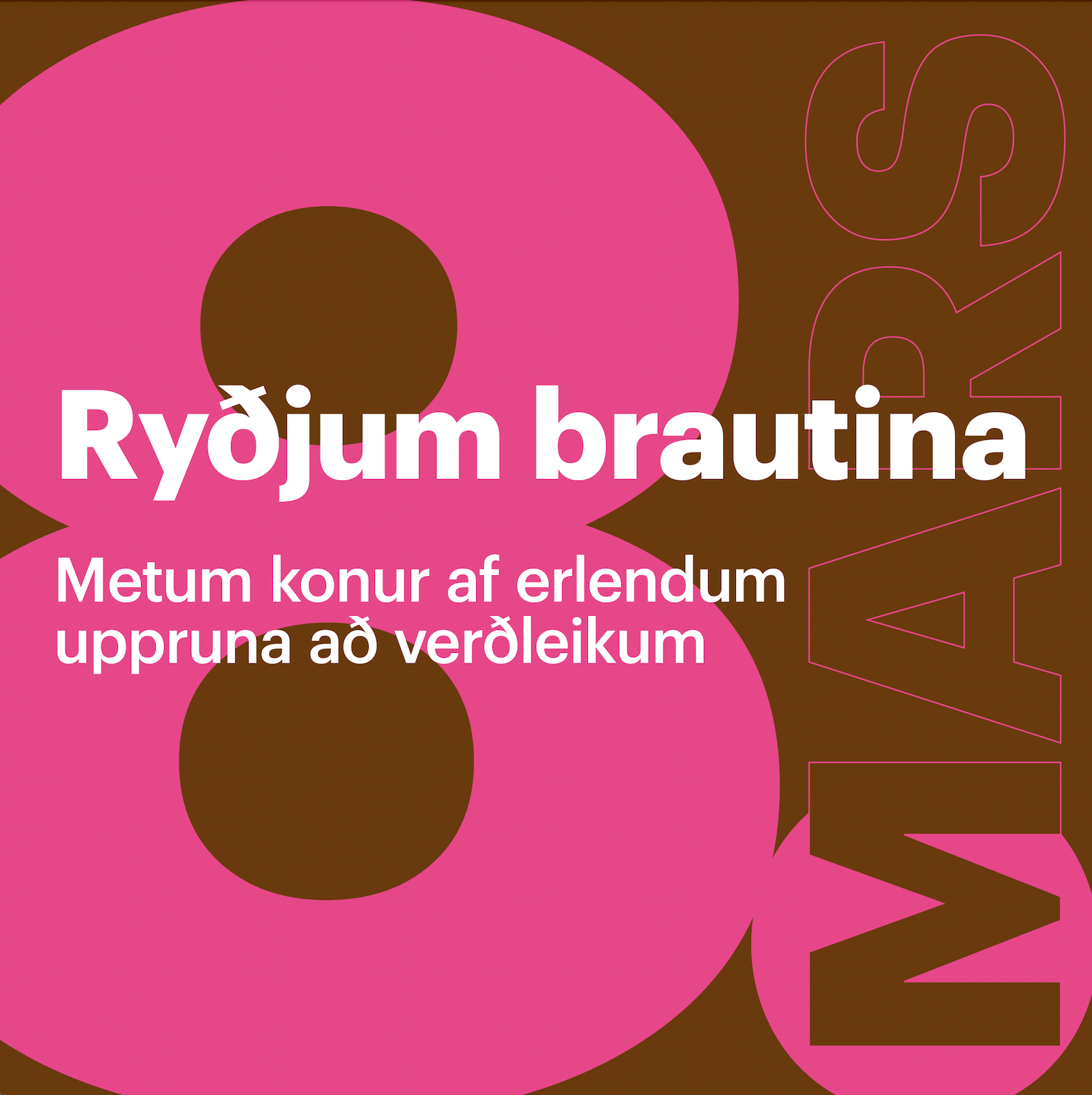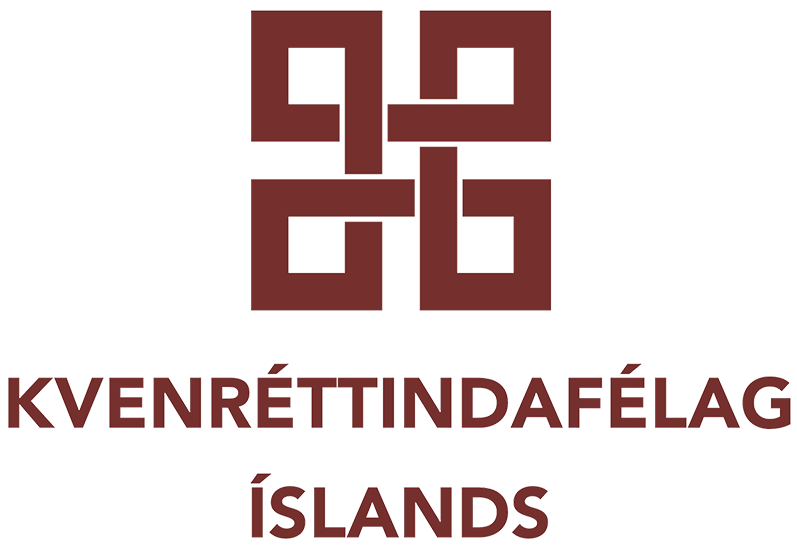
Brynhildur Heiðar- og Ómarsdóttir, the executive manager of the Icelandic Women’s Rights Assocation, had a private meeting with members of the UN CEDAW committee today, answering any questions they might have reading the shadow report the organization submitted earlier this year in cooperation with the Icelandic Human Rights Centre. Margrét Steinarsdóttir, the executive manager of the IHRC, also participated via Skype.
During the meeting, Brynhildur read a second address to the committee raising concern with the invisibility of immigrant women in Iceland, the lack of investigation into cases of human trafficking in Iceland, and teaching gender equality at all school levels. Brynhildur also submitted two specific recommendations of areas of concern to raise with the Icelandic governmental delegation at the meeting, to finalize a national action plan on gender equality and strengthening the status of women in the police and police work on domestic violence.
Brynhildur is the Icelandic civil society representative, and members of civil societies from around the world have supported her during her stay in Geneva. Aase Smedler from Sveriges Kvinnolobby served as the chair of the meeting today, and Bolor Legjeem from MONES – Mongolian Women’s Fund took the meeting minutes.
IWRAW-AP or the International Womens’ Rights Action Watch Asia Pacific have served as the contact point between the CEDAW committee and civil societies for over two decades. Their assistance has been invaluable for the Icelandic Women’s Rights Association during this trip to Geneva.
Members of the CEDAW committee,
My name is Brynhildur Heiðar- and Ómarsdóttir and I represent the Icelandic Women’s Rights Association. I want to begin by thanking Aase Smedler from the Swedish Women’s Lobby, and Bolor Legjeem from the Mongolian Women’s Fund, who are here with me today since I am the only representative from Iceland able to travel to Geneva.
Also present here with me, via Skype, is Margrét Steinarsdóttir, director of the Icelandic Human Rights Center.
On behalf of our two organizations, I spoke yesterday at the informal NGO meeting, where I highlighted three issues we feel are of concern in Iceland: the ongoing violence against women in Iceland, the gender pay gap and childcare gap, and the lack of government action and funding on gender equality work.
Here, during this briefing, I want to highlight three further issues, in the hope that you will find this information to be of use as you begin your dialogue with the Icelandic state tomorrow:
- first, the invisibility of immigrant women in public discourse in Iceland
- second, the lack of investigation into cases of human trafficking in Iceland
- and third, the teaching of gender equality at all school levels
1. Invisibility of Immigrant Women
Immigrant women in Iceland are largely absent from the media and public discourse. Few immigrant women have been elected to political positions of authority or appointed to positions of authority within the government.
This invisibility is reflected in the lack of studies done on the status of immigrant women in Iceland. No studies have been done on the political participation of immigrant women in Iceland, whether immigrant women run for office or even if they vote in elections.
A few studies have been done detailing violence faced by immigrant women in Iceland. One such study indicated that immigrant women lack knowledge about resources available, avoid seeking help for fear of deportation, and that there is a lack of services outside of the Reykjavík metropolitan area.
The invisibility of the immigrant population in Iceland is compounded by the fact that the government institution meant to guard the interest of immigrants in Iceland is located far from the capital. The Multicultural and Information Centre is located in the town of Ísafjörður, in the northwest of Iceland. This important institution needs to be located close to other key institutions in the country, in the capital of Reykjavík, where the majority of the population resides.
2. Human trafficking in Iceland
The purchase of sexual services was made punishable by law in Iceland in 2009, as well as the advertising of prostitution and the profiting from the prostitution of others. Since the purchase of prostitution was made illegal, the number of cases investigated by the police has varied greatly between years, since these investigations are at the instigation of the police, and, therefore, only happen if there is willingness within the police.
Strip clubs were effectively criminalized in Iceland in 2010 when it became illegal for employers to profit from the nudity of their employees. This legislation gives authorities the necessary tools to investigate and close strip clubs which have been linked with prostitution and human trafficking. However, the implementation of these laws remains uneven and ineffectual.
A report issued by the National Commissioner of the Icelandic Police in 2015 states that there are indications that prostitution in Iceland is increasing, especially in Reykjavík and the greater metropolitan area. At least five so-called “champagne clubs” operate in Reykjavík and the greater metropolitan area. The report states that there are indications that cases of trafficking might be connected to these clubs.
In 2013, the government implemented an ambitious action plan to fight human trafficking between 2013–2016. However, very little funding was allocated to implementing this plan and thus, little has been accomplished.
We urge the Icelandic government to be proactive in researching the scope of human trafficking in Iceland, to actively investigate employers and follow up reports on human trafficking, and to adequately fund projects to fight human trafficking and aid victims of human trafficking.
3. Teaching Gender Equality in Schools
In 2011, new National Curricula were instituted for schools on the compulsory and secondary level in Iceland, mainstreaming equality into all subjects. Gender studies had, by that time, already been taught for four years at various secondary schools in the country. Since 2007, gender studies have been taught as an optional course at the secondary level, classes instigated and organized by the teachers themselves, not school authorities. Gender studies have now been offered at the majority of secondary schools in Iceland.
We look to the government to be in the forefront of social change, to be proactive in mainstreaming equality in education. Sustained social change can only be accomplished by educating our young, and it is our teachers who can create the gender equal society of the future. We call on the government to follow the lead of our teachers and to make gender studies a mandatory subject at all school levels.
Thank you.
The Icelandic Human Rights Centre and Icelandic Women‘s Rights Association
Suggested priority issues for Iceland‘s follow-up report, presented at the lunch briefing during the 63rd CEDAW session, 16 February 2016 (Geneva)
1. National action plans on gender equality action and on violence against women
Currently, the Icelandic government is in non-compliance with the Gender Equality Act, operating without a legally mandated action plan on gender equality. The previous Gender Equality Action Plan expired in December 2014. A new action plan has already been drafted, but not implemented, the main problem seems to be lack of funding to be alotted to actions prescribed by the new action plan. This lack has, for example, led to the government being unable to work on gender mainstreaming in all areas of government.
There in no action plan against domestic violence and sexual violence in place. Also, previous ones have not been sensitive to or focusing enough on women in vulnerable positions, such as immigrant women and women with disabilities. Therefore, lack of procedures complicates the way various caregivers and institutions deal with cases of violence and hinders their successful prosecution.
We ask the Committee to urge the Icelandic government to pass a Gender Equality Action Plan which would include an adequate budget for gender equality representatives in government institutions and ensure work on gender mainstreaming in all areas of government.
We ask the Committee to urge the Icelandic government to issue an action plan against domestic violence and sexual violence, a plan which is sensitive to the needs and well being of immigrant women and women with disabilities.
2. Strengthening the police in view of newly implemented procedures and increasing the number of women in the police force.
The Commissioner of the Reykjavík Metropolitan Police imported her model on domestic violence (from the Suðurnes Police district where the Commissioner served before), an intersectional approach to domestic violence which relies on cooperation between the police, social services, child services and health services. The Reykjavík Metropolitan Police also instituted changes in its organization in 2015, whereby more emphasis is placed on human trafficking and sexual violence.
Women are underrepresented in the Icelandic police force, and the number of women police officers who have been sexually harassed is high. The ratio of police women to men in positions of authority is very low.
We encourage the Committee to urge the Icelandic government to support, financially and by any other means, the the approach of the Suðurnes and Reykjavík Metropolitan Police to sexual violence and domestic violence complaints and cases, and to ensure that this model also be applied to other police districts. We encourage the committee to urge the Icelandic government to support the police so that they may actively and in a sustained manner investigate human trafficking in Iceland. We encourage the Committee to urge the Icelandic government to seek ways to increase the number of women in the police force, at all levels of authority.

